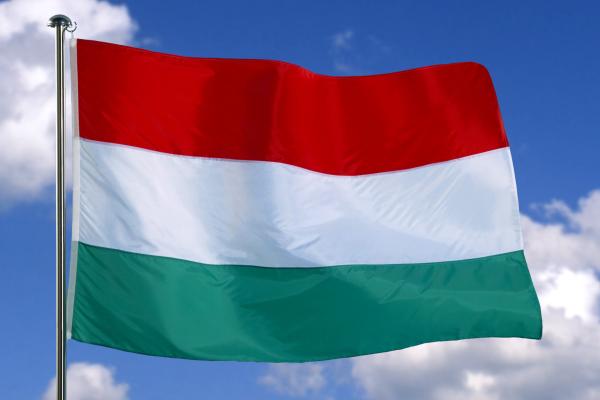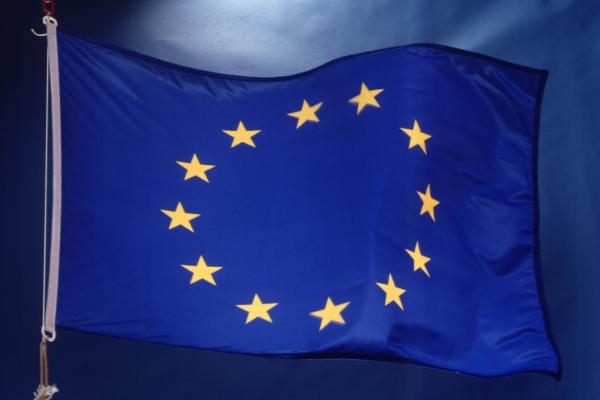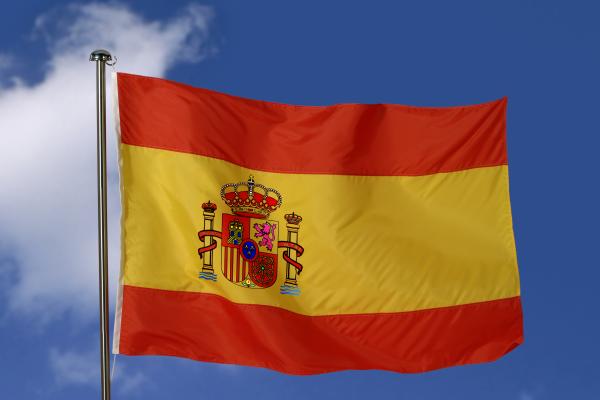Climate change and environmental degradation are an existential threat to the European Union and to the world. To overcome these challenges, the European Green Deal is Europe's new growth strategy, which will transform the Union into a modern, resource-efficient and competitive economy. The European Green Deal aims to make Europe climate neutral by 2050, boost the economy through green technology, create sustainable industry and transport, and cut pollution. Turning climate and environmental challenges into opportunities will make the transition just and inclusive for all.
The European Commission helps EU Member States design and implement reforms that support the green transition and that contribute to achieving the goals of the European Green Deal. It also helps to design the necessary procedures in central and local administrations and establish the coordination structures that are needed for implementing green policies.
Download the brochure about Technical support for implementing the European Green Deal >

Climate action and emissions reduction
Climate action is at the heart of the European Green Deal. The EU already has a strong track record in reducing its greenhouse gas emissions while maintaining economic growth. Even more needs to be done in the coming years. The EU set its targets to reach climate-neutrality by 2050, therefore this will require that all Member States implement a coherent set of climate policies.
The European Commission, via the Technical Support Instrument, helps national authorities design and implement reforms that support their climate ambitions.
EXAMPLES OF SUPPORT
- Developing climate policy, including advice on climate strategies and action plans, and support for modelling greenhouse gas emissions.
- Supporting land use and forest management, including urban planning, SMART cities and forest accounting and inventory.
- Enhancing coastal protection as well as flood and coastal erosion risk management.
- Developing nature-based solutions to address heat waves, drought, flooding and poor air quality in urban areas.
- Implementing of funding instruments under the EU emissions trading system.
- Supporting the decarbonisation of electricity systems, including the design of renewable-energy-friendly markets and regulatory frameworks.
- Developing market-based support schemes for renewable energy and energy efficiency investments.
- Developing national energy and climate plans, including analytical and energy modelling.
- Assessing policies for energy-efficient heating and cooling systems.
- Enhancing energy efficiency investments in buildings.
- Defining policies on sustainable transport/mobility and alternative fuels.
- Reinforcing inland waterway transport and high-speed railways.

Support for setting up a monitoring and evaluation framework for climate and energy policies, as well as improving environmental impact assessment (EIA) methodologies.

Support for improving the framework conditions for investments in clean energy in Greece, particularly for renewable energy and energy efficiency.

Support for identifying policy reforms and financing instruments for energy efficiency in buildings.

The Commission is helping the Port of Antwerp move freight from the road to rail and inland waterways. The objective is to reduce road congestion and improve the navigation and coordination of vessels in the port area.
Just transition
All EU Member States, regions and sectors have to contribute to the transition towards a climate-neutral economy. However, the scale of the challenge is not the same for all. Regions dependent on fossil fuels and carbon-intensive industries will be particularly affected and will undergo a profound economic, environmental and social transformation.
The European Commission is helping Member States to mobilise resources and take actions to ensure targeted support for the regions and sectors that are most affected by this transition. Via the Technical Support Instrument, SG REFORM is also supporting 17 Member States in the preparation of their territorial just transition plans, which each Member State will have to draw up to get access to funding from the Just Transition Mechanism.
EXAMPLES OF SUPPORT
- Assessing transition challenges and needs.
- Preparing an action plan with a road map of measures needed for the transition to a climate-neutral economy.
- Supporting stakeholder consultations to build a consensus on how to transition to a climate-neutral economy.
- Proposing governance mechanisms to implement the transition.

Support for setting out a strategy for the region's transition from coal production to other economic activities.
Sustainable development
The EU is fully committed to being a frontrunner in implementing the 2030 Agenda for Sustainable Development, together with its Member States. The 17 sustainable development goals (SDGs) are about making people’s lives better and protecting the planet from degradation, so that it can support the needs of present and future generations. As of 2020 the European Commission has reinforced its analysis and monitoring of the achievement of SDGs in the European Semester process. In parallel, Member States are mainstreaming SDGs in their policymaking and developing targeted policies to move towards a more sustainable development.
EXAMPLES OF SUPPORT
- Developing a sustainable development strategy for 2050.
- Developing an action plan to improve well-being for rural residents and ensure the economic stability of rural areas.
- Implementing the sustainable development strategy mainstreaming the SDGs in decision-making at all levels of government.

In order to implement the 2030 Agenda for Sustainable Development, the Italian government adopted a national sustainable development strategy in 2017.
Energy
Decarbonising the energy system is critical to reach the EU’s climate objectives in 2030 and 2050. At the same time, energy needs to be secure and affordable for consumers and businesses. For this to happen, Member States have to transform their energy systems into a fully integrated, digitalised and competitive EU energy market that is based largely on renewable sources. In addition to regulatory reforms, Member States need to enable and promote further investments in clean energy, including energy efficiency.
EXAMPLES OF SUPPORT
- Adapting the legislative and regulatory framework to increase renewable energy shares.
- Defining policy measures to promote energy efficiency.
- Designing competitive electricity markets.
- Removing barriers to financing and service markets for clean energy.
- Supporting strategic planning through energy modelling and analysis.

The European Commission supported 17 Member States in identifying reforms and investments to reduce dependencies on fossil fuel imports from Russia and implement the REPowerEU.
Transport and mobility
Transport allows people, services and goods to move freely within the European Union. It is a cornerstone of EU integration, connecting people across different regions and countries, and a major contributor to the economy. Demand for transport continues to rise as economies become more integrated. This brings opportunities but also new challenges. In particular, transport represents almost a quarter of the EU’s greenhouse gas emissions and is one of the main causes of air pollution in cities. Member States are looking for ways to develop smart, sustainable and efficient transport solutions. This requires putting users first and providing them with more affordable, more accessible, healthier and cleaner alternatives.
EXAMPLES OF SUPPORT
- Analysing policies, economic instruments and legal frameworks.
- Carrying out cost–benefit analyses.
- Developing modelling on investment scenarios and impacts.
- Developing policy recommendations, action plans and road maps.
- Designing communication strategies and plans.
Environment and the circular economy
Environmental degradation is expected to affect economic activity more and more. It can cause extreme weather conditions, have an influence on human health and make natural resources less accessible. Protecting the EU’s natural capital, transitioning to a resource-efficient economy and protecting people from environment-related pressures are key priorities of the European Green Deal. Member States are engaging in reforms to address these challenges by further developing their environmental policies and strategies.
SG REFORM supports national authorities with designing and implementing reforms that help to address environmental degradation.
EXAMPLES OF SUPPORT
- Defining national and municipal waste management policies.
- Preparing national circular economy strategies and action plans.
- Implementing instruments to decarbonise industries.
- Supporting water management and the monitoring of water services.

In a densely populated country such as the Netherlands, there is a strong need for a coordinated approach to area management.

Support for the Romanian economic regulator to play a critical role as the central repository of performance and compliance information.
Research and innovation
Digital technologies have a profound impact on our way of living and doing business. Member States need to have the capacity to benefit from our increasingly digitalised society and to face the challenges it brings. This requires designing policies and deploying innovative solutions to give businesses the confidence, competences and means to digitalise and grow. A systematic and forward-looking research and innovation strategy is crucial to a more productive and green economy.
EXAMPLES OF SUPPORT
- Enhancing cooperation between business and science to improve the implementation of innovation policies.
- Addressing the capacity shortages in research institutes, notably through sharing knowledge and best practices.
- Increasing the innovative performance of small and medium-sized enterprises.

In order to boost Lithuania’s innovation capacity, the Lithuanian authorities have started to implement an innovation reform.
Greening public and private finances
To achieve the ambition of the European Green Deal, significant investments are needed. The private sector will play a key role in financing the green transition. This requires consistent strategies, innovative regulatory frameworks and smart instruments. National governments will also be instrumental in financing the transition by sending the right price signals and reorienting public expenditure towards sustainable policies. They also need to stimulate demand for more sustainable goods and services through green public procurement and reduce the carbon footprint of public services. A solid governance framework will ensure that decision-makers are accountable to future generations.
To address these challenges, SG REFORM is supporting Member States in the areas of:
- green budgeting and environmental taxation;
- green procurement;
- sustainable finance and investments.
EXAMPLES OF SUPPORT
- Strengthening green public investments.
- Implementing expenditure and tax expenditure reviews of green and environmentally unfriendly (‘grey’) policies in budget frameworks.
- Designing green taxation and modelling its impact.
- Implementing EU guidelines on green budgeting.
- Developing a sustainable finance action plan for Member States and national promotional institutions.
- Implementing sovereign green bonds frameworks.

The Irish performance budgeting framework needs improvements to be used for sustainable budgeting and reporting.

The Commission supported the Spanish national promotional bank - ICO - in the design of a Strategic Action Plan for direct financing of more sustainable (green and social) activities and projects.

Although Lithuania is active in green finance, the current level of capital raised for these types of investments is not sufficient in the long term.
